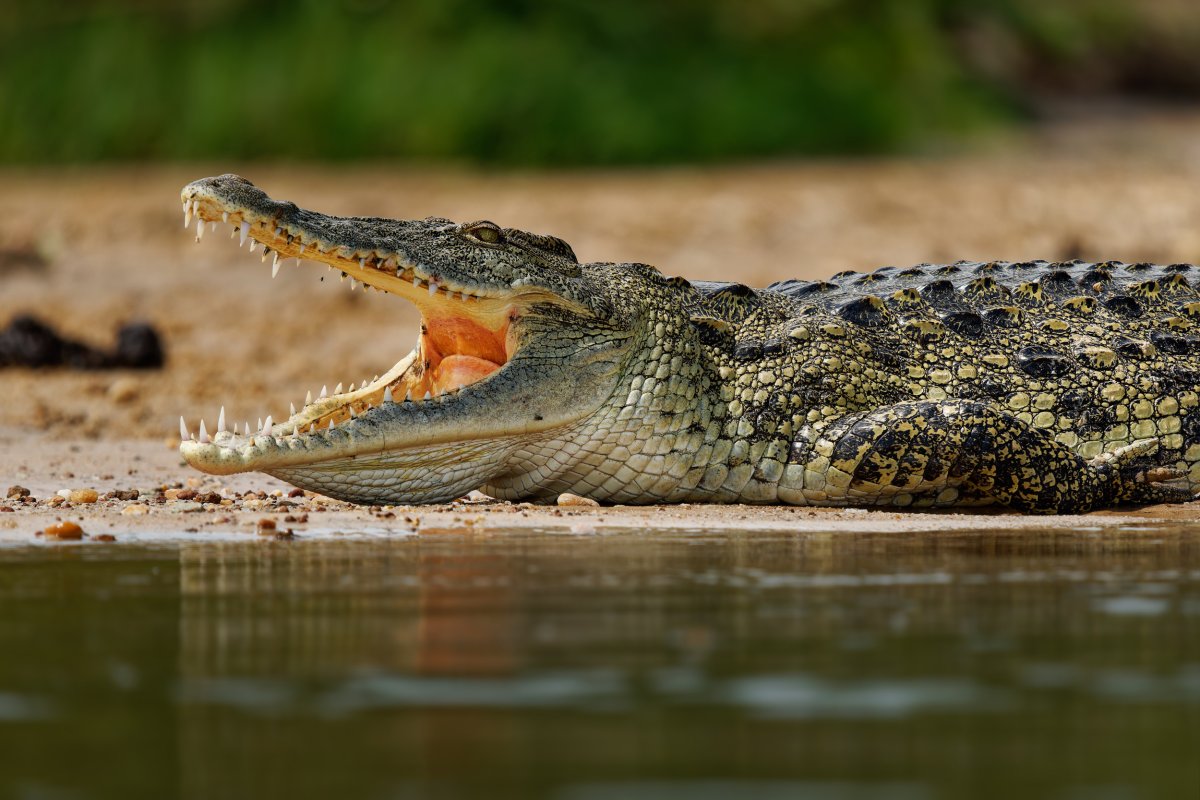Some on social media are sharing their opinion on some behavior by crocodiles, worrying that the reptiles are pretending to drown to lure humans into the water, although experts have discounted this.
Why It Matters
After a video showing strange behavior by a crocodile swimming in the Barito River in Borneo, Indonesia, went viral, some expressed concern that the croc, which was waving its forelimbs in the air while on its back underwater, was only faking and wanted to draw humans to a place in the water where it could attack them.
The video amassed at least 50 million views, but the Instagram account that posted it has since gone private.
Crocodile attacks are no doubt horrifying, and the idea that an animal is intentionally leading humans to their demise is even more concerning. However, several experts have countered these reactions to the video, calling them "hysterical" and misinformative.
What To Know
There are hundreds of crocodile attacks every year, with the saltwater crocodiles being the most dangerous. It is unclear what type of crocodile is seen in the video.
The Crocodile Foundation says crocodile-human encounters are "largely avoidable."

Crocodiles are known for their intelligence and are considered "sophisticated hunters," according to a report by the website ScienceDaily. Despite these attributes, experts have dismissed the idea that they might intentionally lure humans into the water.
Casey Holliday, a professor of pathology and anatomical sciences at the University of Missouri, told Newsweek that the notion of a crocodile acting in distress on purpose was "hysterical."
Zoologist Graham Webb said the idea was "complete creative journalism with no factual basis," according to a report by the website LAD Bible. Webb said it's possible the crocodile had its tail caught, which kept it from swimming normally.
Brandon Sideleau, a researcher of human and crocodile conflict at Australia's Charles Darwin University, told LAD Bible he thought the crocodile might have had prey in its mouth, which caused it to exhibit uncommon behavior.
What People Are Saying
Casey Holliday told Newsweek: "Who knows what that animal was doing or if it was struggling with something...but it was not luring people into the water."
Gregory Erickson, a professor in the Biological Science Department at Florida State University and an expert on crocodilian feeding behavior and biomechanics, told Newsweek: "I do not believe this crocodile was trying to lure humans into the water. Such behavior would be unprecedented. These animals are inherently stealthy and don't need to resort to such extremes to access prey."
He continued: "I have seen both alligators and crocodiles show the same posture when struggling with prey. It is also possible that the semicircular canals—structures in the inner ear that are used to sense one's orientation in three-dimensional space—in this particular individual were compromised."
What Happens Next
Sideleau expressed concern that the misinformation could damage crocodile populations or even endanger humans.




















 English (US) ·
English (US) ·